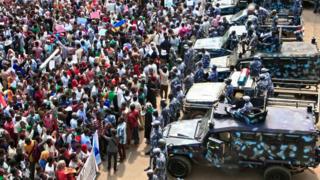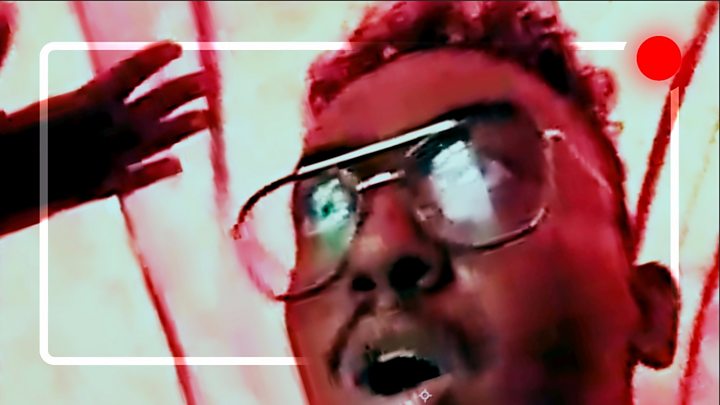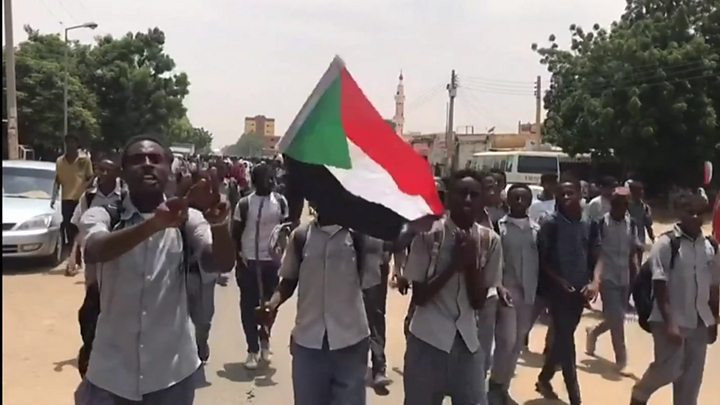 Image copyright
Image copyright
Getty Images
There were clashes between the police and protesters as the crowd moved towards the palace
Thousands of people have protested in Sudan to demand justice for pro-democracy demonstrators who were killed earlier this year.
The crowd gathered outside the presidential palace in the capital, Khartoum, on Thursday.
They chanted slogans, waved flags, and also called for the appointment of new senior judiciary officials.
Sudan has been in turmoil since long-time ruler Omar al-Bashir was ousted by the military in April.
More than 100 demonstrators were killed in June, doctors say, when the security forces dispersed a sit-in outside the defence ministry.
- Sudan’s violent political crisis explained
- The warlord who may control Sudan’s future
- Is Sudan a new regional battleground?
The unrest on Thursday was the first major protest since civilians and the military signed a power-sharing deal last month.
The landmark agreement ushered in a new governing council, which includes both civilians and generals, and will pave the way towards eventual elections and civilian rule.
Image copyright
Getty Images
It was the first major protest in Sudan since civilians and the military signed a power-sharing deal
Image copyright
Getty Images
Some protesters stood on the hood of security vehicles
On Thursday, police blocked protesters near the palace but the crowd broke through a barbed wire barrier.
Police later fired tear gas in an attempt to disperse them, witnesses told Reuters news agency.
How did the crisis unfold?

The unrest in Sudan can be traced back to December 2018, when then President Bashir’s government imposed emergency austerity measures.
Cuts to bread and fuel subsidies sparked demonstrations in the east over living standards, and the anger spread to the capital.
The protests broadened into demands for the removal of Mr Bashir – who had been in charge for 30 years.
In April, the president was overthrown by the military after sit-ins outside the defence ministry, but demonstrators then wanted to ensure authority was swiftly transferred to a civilian administration.

A council of generals led by Lt-Gen Abdel Fattah Abdelrahman Burhan assumed power, but it has struggled to return the country to normality.
The army is not a unified force in Sudan; paramilitary organisations and various Islamist militias hold some sway.
Sudan crisis: Thousands demand justice over protester killings

